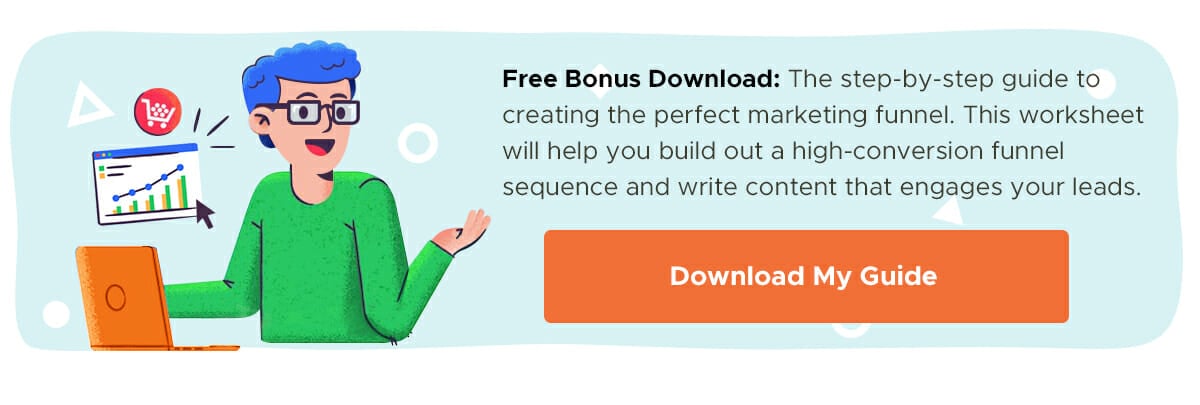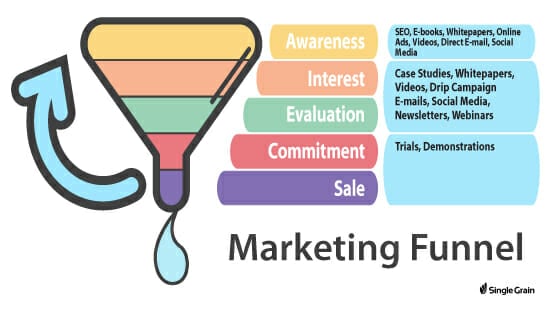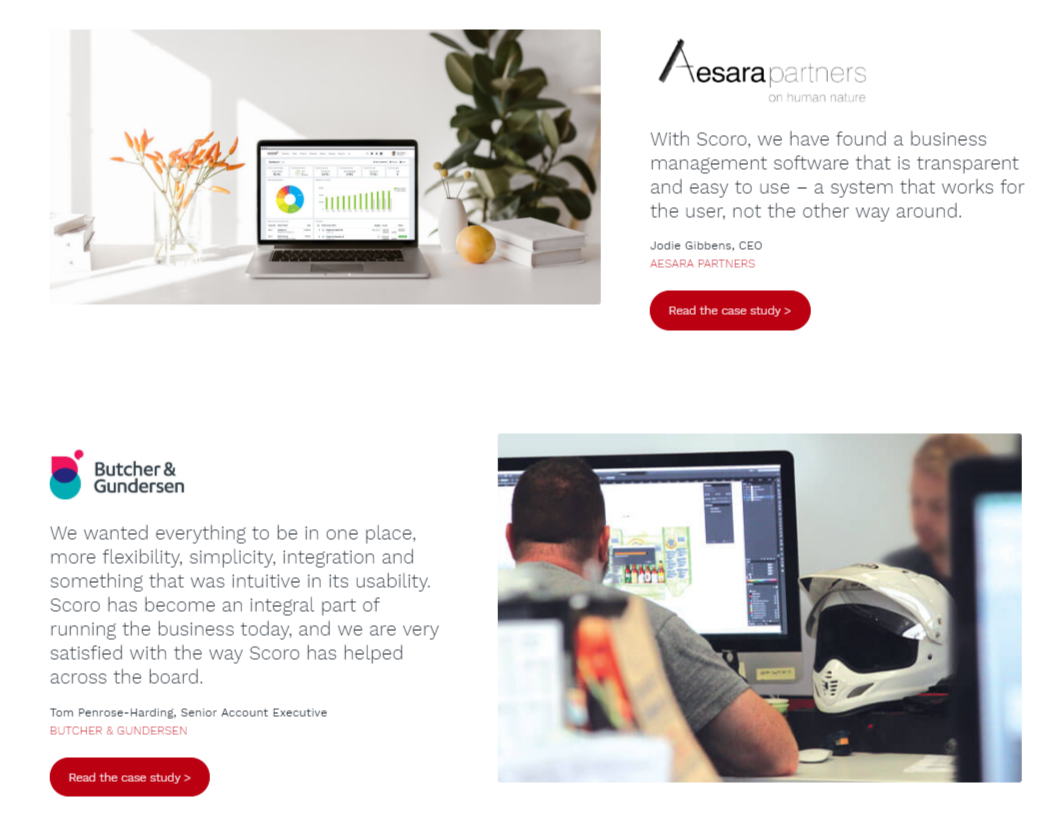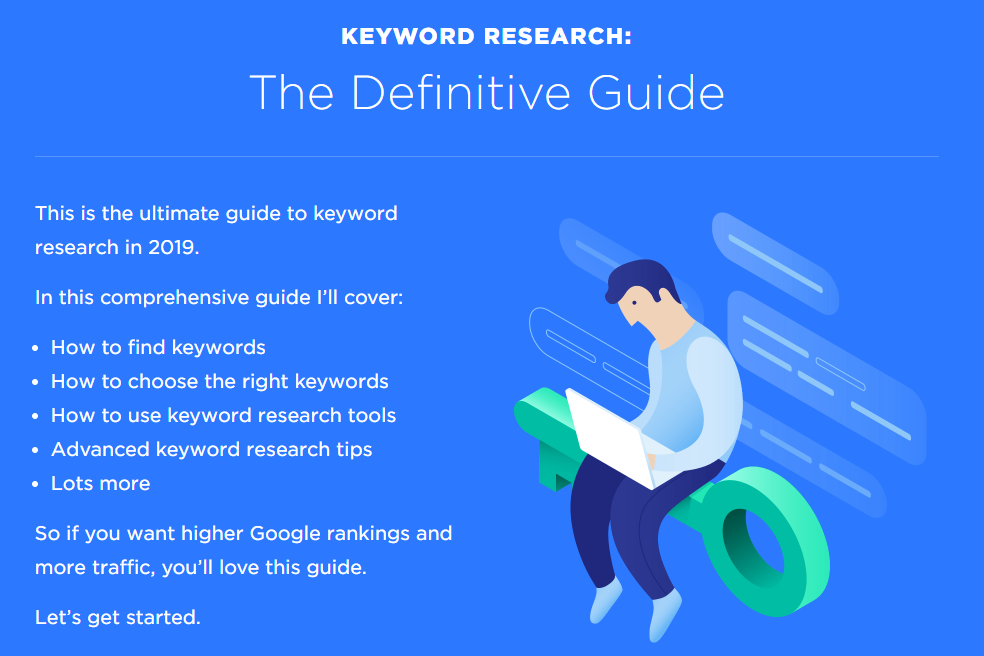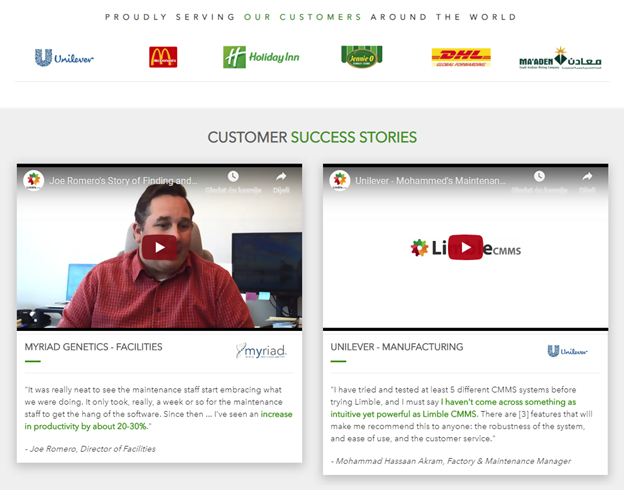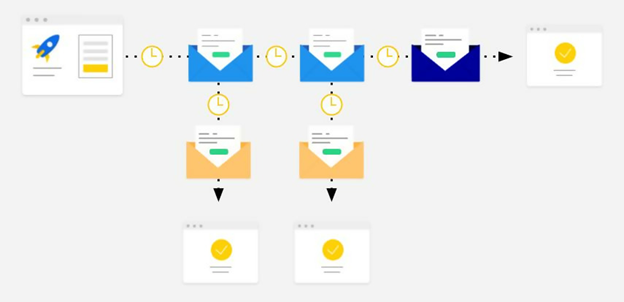MQL vs. SQL – Serve Up The Right Type Of Content To Your Leads
[Free Consultation] Are you spending money on advertising but not getting the results you want? Are you looking for more sales and leads but have no idea where or how to start? Get help from our world-class marketing experts in a free consultation call.
Click Here To Schedule Your Free Consultation Now
Lead generation is the holy grail of marketing efforts. Every marketing campaign, across all mediums, is targeted towards generating leads in an effort to bring in new customers. After all, that’s the lifeblood of your business.
Unsurprisingly, when marketers observe public interest in what they have to offer, they deem the work done from their side. The great misconception about leads is that, well, all leads are the same.
That’s where the catch lies. They are not. As great as your marketing efforts or campaigns might be, they hold a different value for each of your prospective clients. This is why MarketingSherpa found that 61% of B2B marketer send all leads directly to sales; however, only 27% of those leads are qualified.
In a typical consumer journey, leads can be categorized into two broad types: marketing qualified leads (MQL), and sales qualified leads (SQL). Each type requires exposure to different types of content to nurture them into the next stage of the buyer’s journey.
MQL vs. SQL – What’s the Difference?
Distinguishing an MQL from an SQL is an important relationship between sales and marketing. This initial step of differentiating one from the other is the ultimate foundation for the lead hand-off.
Marketing qualified leads are at the stage that precedes the normal lead level, inferring that the lead is more likely to become a customer. Knowing which lead is qualified to be classified as an MQL is determined by the organization’s lead intelligence, which tracks specific behavioral and engagement characteristics as shown by previously successful leads.
This can be determined by a repeated interest in the content of your website or engaging with a sales-related CTA. However, remember that they are not willing to buy from you just yet; that will require further nurturing.
A sales qualified lead is typically at the stage that supersedes the MQL. It has been identified as prepared to buy and fits into your ‘buyer’ profile — so the core difference between the two lies in the intention and readiness to buy your product.
Dive Deeper:
- How to Write Lead Nurturing Content: 7 Proven Tactics
- How to Excel in Lead Nurturing: A Quick Guide for Digital Marketers
- 4 Ways to Use Automation with Account-Based Marketing for Better Lead Nurturing
- Turning a Lead into a Prospect with MOFU Content
- How to Create Better-Converting In-Content Calls to Action (CTAs)
What Type of Content Do You Need to Nurture Leads into the Next Stage?
According to another study by MarketingSherpa, 79% of marketing leads never convert to sales. Lack of lead nurturing is the primary cause of poor performance in this regard.
As content marketing continues to provide unparalleled lead generation value for organizations, its potential as a lead generation tool means it can be leveraged to nurture leads further in the conversion funnel.
The average cost to generate a lead through inbound marketing ($143) is about half the average for outbound marketing ($373). Click To TweetDifferent leads exhibit different perceptions and understanding of your product. As a result, the content should also be customized according to the buyer’s stage in the conversion funnel:
What Content to Display To MQLs
While MQLs do portray a level of trust that is more enhanced than a normal visitor, they are still not adamant about converting. Although they realize that they are experiencing a problem, they are yet to be convinced of your capability to be the solution.
Your content should be customized towards nurturing marketing qualified leads into sales qualified leads. Here are a few examples of content types that should be visible to MQLs.
1) Targeted Email Campaigns
Emails have an ROI rate of 4400% ROI ($44 for every $1 spent). For years, marketers have used emails to convert interested visitors into guaranteed leads effectively.
When dealing with MQLs, marketers are aware of the consumer’s heightened interest, which means that they don’t need to lure customers into the sales funnel and can therefore risk being more straightforward.
Tailored email campaigns are designed to touch the consumer’s pain points – problems that currently engulf their organization or business – and display an intent of solving them through what you have to offer.
Dive Deeper: How to Get More Responses From Cold Emails
2) Case Studies
A case study can be defined as an in-depth analysis of a project, campaign or organization and its journey from identifying a problem, the search for a solution and corresponding implementation of the selected solution – all to analyze the result of such solution on the failure or success of the project or campaign.
Marketing case studies are important in the sense that they advocate for your product or service through means of social proof.
In a case study, you are required to meticulously analyze the reasons behind the success of one of your past campaigns or client partnerships, where you provided an effective solution.
You effectively analyze a consumer journey from the root, beginning from the problem and the consequences that stemmed from the problem, all the way to provide a lasting solution that put an end to the complications.
For MQLs, case studies provide a relatable experience with regards to the insights into the problems and spark interest through establishing your product as the solution.
According to Marketing Charts, case studies help convert and accelerate the most leads in B2B settings. Successful case studies not only portray your capability to efficiently solve the customers’ problems, but also provide a detailed insight into the problems that can help MQLs relate.
Dive Deeper: Single Grain’s Twenty20 Case Study
3) In-Depth Blog Posts
Value creation is the modern pathway to lead generation. Modern-day marketing revolves around the creation and provision of value to the consumers. In fact, the level of value inferred through content has been the principle reason behind the meteoric rise of content marketing.
You can risk ruining the potential of the lead with in-the-face marketing gimmicks. Content marketing tactics such as in-depth blog posts, on the other hand, provide evidence of your authority and expertise that helps shape a consumer’s decision.
In-depth blog posts that span over 2,000 words provide ample ground for you to not only delve deep into the complications and issues often faced by the consumers in your industry niche, but also allow you to provide a glimpse of your firm grasp of the subject matter as you continue to provide answers to their queries.
Advancing technology, such as modern-day marketing CMS, has further streamlined the content creation process, which makes it easier for marketers to create, edit and publish detailed posts for maximum exposure.
Dive Deeper: Absolutely Everything You Need to Know About 10x Content
4) White Papers
What is a white paper? The definition of white papers differs from industry to industry. While legislative white papers are technical pieces of content that are prepared for major purposes, marketing white papers are quite the contrary.
According to HubSpot, “a whitepaper is a persuasive, authoritative, in-depth report on a specific topic that presents a problem and provides a solution.” The pedigree of white papers as a lead generation and lead acceleration tool has been long established.
Content Marketing Institute’s 2018 content marketing survey found that white papers were the most effective type of content used by 62% of the most successful respondents:
Informational, lengthy and comprehensive – white papers provide unparalleled insight and industry knowledge and tackle tougher obstacles faced by the industry in general. MQLs who are perplexed about conversions benefit greatly from the insight and proficiency on display on a white paper.
Dive Deeper: How to Boost Lead Generation and Authority with White Papers
What Content to Display to SQLs
Sales qualified leads are in a more advanced state than MQLs, and therefore much more clear in their pursuit of your product.
Through a variety of behavioral triggers and analysis, not only have they acknowledged the presence of a problem, but they have also identified you as a probable solution for such a problem.
While the impact of quality salespeople on the team cannot be denied, tailored content can lay the groundwork for your sales team to guarantee the lead conversion. Their intent to convert and buy is the core emotion that your content should look to target.
In stark contrast to the content that suits MQLs, which is replete with value creation and how to showcase your authority in your industry, content for SQL should be focused on encouraging them to convert easily. Click To TweetSocial proof and incentives are the primary highlights of the content that should be tailored for SQL. Here are a few examples:
1) Testimonials
The epitome of social proof is the consumer testimonial. From Amazon to Alibaba, every website that sells something leverages the power of social proof. Approximately 89% of customers find testimonials highly effective in assisting them with their decision:
Positive testimonials are glowing (and real) accounts of consumers who have benefited from using your product and collaborating with you. When SQLs come across such testimonials, they are provided with a reassuring boost that they have made the correct decision by showing the intent to buy from you.
Dive Deeper: How to Get as Many Testimonials as Possible from Your Customers
2) Product Demos
While social proof helps push the consumer further across the funnel, it is only when they get to try the real thing that all their doubts vanish and establishes you as the perfect choice.
Not only is a product demonstration an insight into how the product works, but it effectively conveys your confidence and level of dedication to your consumers.
In addition to showing the prospect the quality of your offering, the commitment to let the consumer assess whether they need the product or not goes a long way in actually tilting the buying decision in your favor.
3) Free Trials or Coupons
Incentives drive emotional cues, which in turn determine consumer behavior. Study after study has documented the effects of positive and negative incentives on human behavior.
Free trials and discount coupons present the perfect incentive to ‘push’ sales qualified leads to convert. People who are qualified as SQLs are actively interested in your product and have shown a desire to convert.
By providing them with a discount coupon or a free trial, you are either giving additional monetary benefit for something they were already inclined to do (hence, a greater motivation to convert) or you are providing them with a chance to alienate their fears regarding how the product might be.
In either scenario, that is a win-win situation for both the SQL and you, the marketer.
4) Product or Pricing Sheets
A consumer’s decision making is dependent upon a variety of factors, but none so important as the price. When the consumer is nearing their decision, it is imminent that they will look for supporting factors that help cement their choice.
By providing sales qualified leads with pricing sheets, businesses are effectively helping consumers conclude the buying process.
The Importance of Efficient Lead Nurturing
Leads are to business what gas is to vehicles; there is simply no sustainability for a business that’s deprived of leads. However, the number of leads generated does not automatically mean that all of the leads are being converted.
Despite all efforts, 75% of companies and 69% of marketers state that converting leads into customers is their top priority.
At the end of the day, businesses are not judged by the number of people who show interest in what you have to offer, but by the number of people who show an intent to buy and your efficiency in closing deals with such consumers.
Lead nurturing allows businesses to convert MQLs into SQLs (who have a higher probability of converting). And subsequently, converting SQLs into customers requires careful nurturing and exposure to marketing campaigns that have been devised for that specific stage in the conversion journey.
Lead nurturing can be done in a variety of steps, including:
1) Drip Campaigns
Drip campaigns are carefully designed, often automated email campaigns that aim to drive conversion. These emails can be varied based on triggers or actions the person has performed. This can differ from buyer stage to buyer stage, such as signing up for your service or making a purchase, which is why they’re also sometimes called behavioral emails.
Dive Deeper: How to Use Personalization to Increase the Impact of Email Marketing
2) Newsletters
Regular newsletters not only ensure that consumers remember you, but provide a steady flow of fresh and innovative information that interests and engages the client. In the case of an SQL, newsletters can provide supporting evidence that confirms their decision to convert.
Dive Deeper: Beyond the Newsletter: You’ve Got Their Email, Now What?
3) Offer Q&A Support
Whether prospective clients are in the MQL or SQL stage, they are full of questions. By having an active Q&A support, an organization can not only provide valuable answers to the consumers, but their dedication is bound to build a rapport that boosts lead conversions.
Key Takeaways
Not all leads are created equal. Properly nurturing leads all the way to conversion requires correct identification and further exposure to content that is designed to help the consumer realize that you are the one that can solve their problems.
MQLs and SQLs represent different stages in the buyer’s journey. The content that organizations serve to them should reflect their difference in perspective and intention in order to mold their opinion and push them towards conversion.
